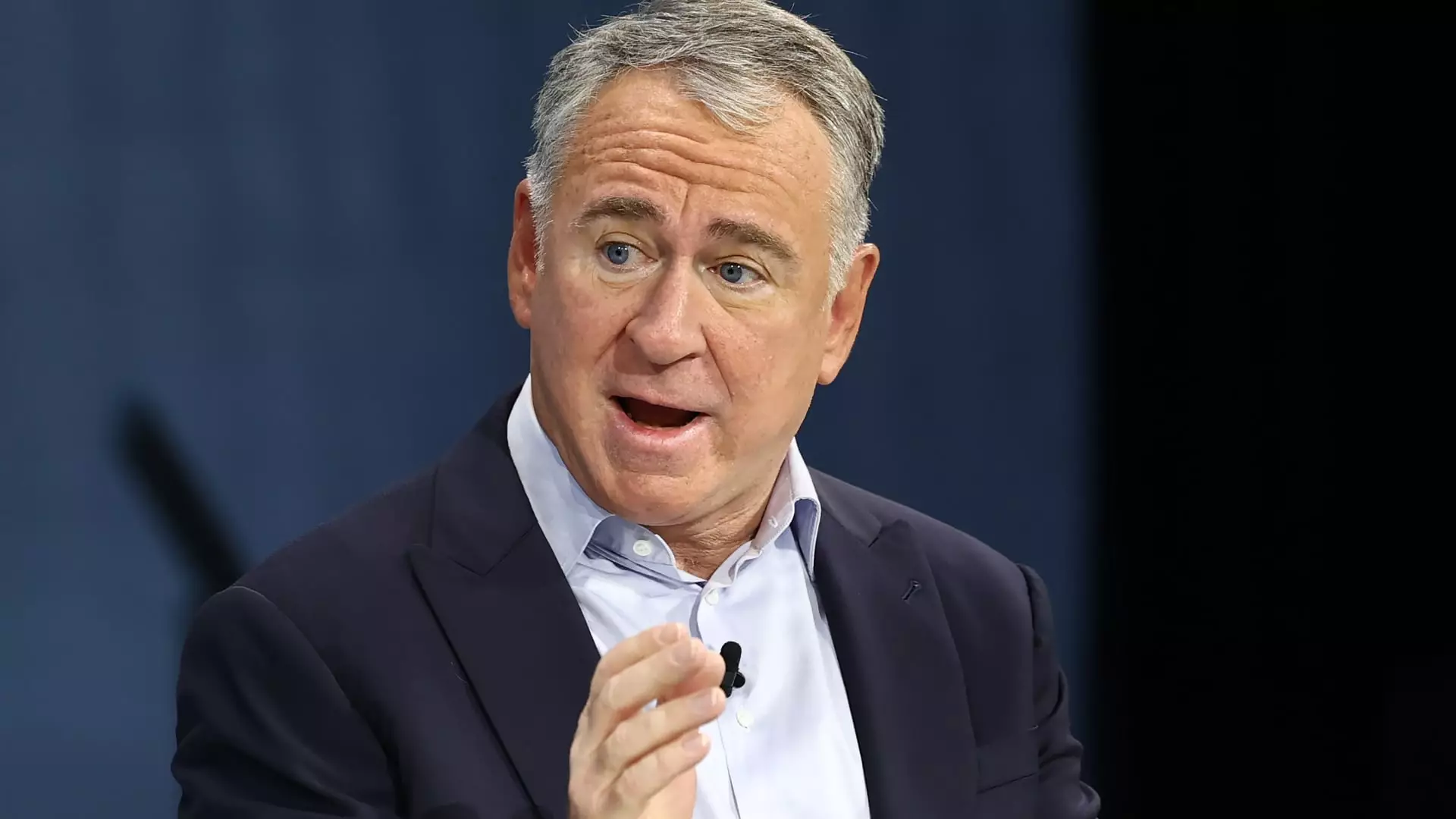In today’s increasingly interconnected global economy, the approach that leaders take to trade can have far-reaching implications. Recently, Ken Griffin, the CEO of Citadel, raised significant concerns regarding the implications of aggressive trade rhetoric employed by former President Donald Trump. Speaking at the UBS Financial Services Conference in Key Biscayne, Florida, Griffin articulated worries over the uncertainty generated in the business world by such an approach. As tensions rise and tariffs are imposed, the message is clear: a combative trade policy can adversely affect not just immediate economics but also long-term financial planning.
Griffin’s opinions suggest that Trump’s assertive trade strategies—from the imposing of tariffs on steel and aluminum imports to a widespread 10% duty on Chinese goods—have already begun to create an atmosphere of distrust among business leaders. Particularly troubling is Griffin’s assertion that such rhetoric can lead to a decline in confidence among CEOs and policymakers with regard to relying on the U.S. as a steadfast trading partner. This sentiment of uncertainty can complicate corporate long-term strategies, making it difficult for executives to project future operations correctly.
Moving away from mere statements, Griffin provides a robust analysis of the economic climate under heavy tariffs. He emphasizes how heightened trade tensions not only challenge immediate financial calculations but also create a ripple effect that can stymie significant investments over time, impacting future growth and job creation.
Griffin’s remarks brought to light the difficulties faced by multinational companies attempting to navigate a changing trade landscape characterized by shifting tariffs and fluctuating trade agreements. Corporations typically plan for decades into the future, aiming to allocate resources in a manner that maximizes returns. In an environment fraught with uncertainty—where trade relationships can deteriorate or tariffs can swing based on political rhetoric—these long-range plans become precarious.
Furthermore, Griffin warns against the rise of what he terms “crony capitalism,” a situation where the connections between business leaders and government officials shape economic policies to favor particular entities rather than the market at large. This form of capitalism often distorts competitive advantages and can lead to less innovation and slower economic growth, ultimately harming the very businesses that such policies aim to protect.
As nations grapple with the implications of trade policy, the necessity for constructive dialogue cannot be overstated. Griffin’s insights urge leaders to reconsider the ramifications of their language and actions, advocating for a more balanced approach that fosters trust and partnership rather than aggression. The potential for tariffs and hostile trade relationships to damage the economy poses significant risk to all parties involved, highlighting the importance of thoughtful discourse in international trade.
While the effects of combative trade policies may not be immediate, the warnings from influential figures like Ken Griffin serve as crucial indicators of the broader economic challenges lying ahead. It is essential for leaders in business and politics alike to navigate this landscape with care, acknowledging the potential repercussions of their policies long before the consequences manifest. The future of trade may very well depend on it.

Leave a Reply